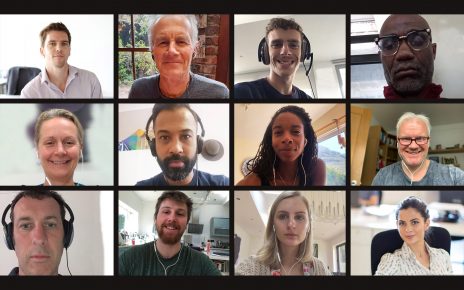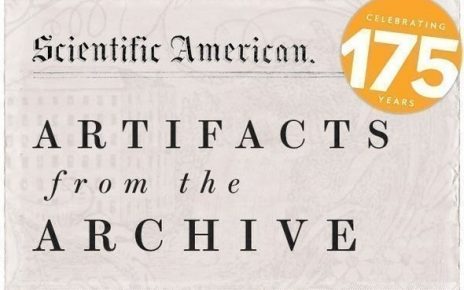
Public education has long been a battlefield in the U.S., from the Scopes trial to desegregation to climate change. Florida Governor Ron DeSantis’s recent demands for greater control over public education—and students’ bodies—in the guise of “parent’s rights” accelerates this conflict, rejecting the importance of learning as a public good in itself in favor of promoting conformity and uncritical thinking.
As a historian of fascism and Italian fascist education, I find the moves to exert more power over education disturbingly familiar. Even ignoring the obvious harm DeSantis’s campaign inflicts on Florida’s students—already detailed by numerous experts—the effort to constrict the information available to students mirrors fascist ambitions in important ways and threatens the very democratic foundations its proponents claim to champion.
History shows such efforts harm us all.
Last summer, Florida lawmakers enacted two laws limiting access to information in public education. The first, the Stop Wrongs to Our Kids and Employees, or Stop W.O.K.E. Act, prohibits teachers and teaching materials from promoting the idea that anyone is inherently oppressive or responsible for the actions of others who share “the same race, color, sex, or national origin.” The second, the now infamous “Don’t Say Gay” law, formally the Parental Rights in Education Act, bans “classroom instruction” in sexual orientation or gender identity before fourth grade.
Several other bills moving through the Florida House of Representatives and Senate are designed to further stifle critical thinking, debate and broader awareness of the society we live in—all under the banner “Freedom from Indoctrination.” Examples include banning “classroom instruction” (or recognition) of nonbinary gender identities and sexual orientations more widely; legally defining “sex” as binary and “immutable”; and removing all sexual health education from elementary and middle school curricula.
Critics including scholars and politicians have decried such measures not merely as symptoms of America’s “culture wars,” but as distinctly “fascist.” I am often frustrated by the ways “fascism” is applied uncritically as a substitute for “something I don’t like.” Nonetheless, highlighting the parallels between the ambitions of DeSantis and those of the fascist dictator Benito Mussolini exposes the shared threat to democracy.
At the heart of fascist political strategy was the expansion of state control over public and private life under the facades of popular support and common good. Mussolini may have been legally appointed as Italy’s prime minister in 1922, but by 1927 all political parties had been banned or absorbed into his Fascist Party. At the Ministry of Education, Mussolini appointed nine ministers over 21 years. Only five had teaching experience but, more importantly, all but one (who quit after six months) were devoted party members who did little to question Mussolini’s directives.
Though DeSantis has not barred opposing political parties from the Florida legislature, he has taken advantage of the governor’s outsized, constitutionally-granted influence over the education system to exclude dissenting opinions. In Florida, as in more than a dozen other states, the governor appoints all members to the Board of Education. This system means neither academic nor professional qualifications are required of members. As evidence, Florida’s current Board of Education includes three lawyers, one doctor, two business executives and just one teacher (who was appointed in March).
Another similarity to fascism related to this preference for loyalty over training is the targeted sidelining of experts and outright rejection of contradictory viewpoints. As Mussolini solidified his power in the 1920s, he increasingly placed restrictions on school curricula (and public discourse) until the regime announced the development of national textbooks produced by a handful of party faithful. These texts prioritized content supporting fascist ideology and conforming to a pseudoscientific vision of the world, including Mussolini’s resurrection of ancient Rome’s glory; Italians’ racial superiority and right to invade sovereign kingdoms; women’s national obligation to be mothers of future soldiers; and, later, Jewish racial inferiority.
Similarly, DeSantis’s calls to censor content under the pretense of returning lessons to “the facts” ignore the findings of the people qualified to articulate those “facts” unless they support the desired narrative. This lack of expertise is doubly dangerous for our students and democracy. First, it means a small number of people rely on their personal priorities for a child’s education to determine school curricula for all students. The dependence on individual perspectives as much as knowledge grounded in research and expertise leads to an increasing conflation of faith with science, memory with history, and dogmatism with truth. Second, the unwillingness to provide students with subject-appropriate, expert-developed materials that introduce them to new ideas limits their ability to assess sources for reliability and accuracy. Moreover, confronting evidence-based material that challenges one’s own experience and presents different perspectives is essential to developing citizens able to harness information from varied sources to best solve society’s problems.
Like fascism’s promotion of an idealized and entirely fabricated Italian race, Florida’s curricular decisions aim to mold students in the image of a very small portion of our country’s population. I do not believe the DeSantis administration’s actions rise to the level of Italian fascism under Mussolini, but there are very real parallels that are extremely dangerous. DeSantis’s ongoing efforts to concentrate power and perspective to “protect” Floridians from uncomfortable or simply different ways of thinking has the potential to further erode the principles of open debate and collective responsibility that underpin democracy.
However, to focus solely on Florida and DeSantis is to ignore a larger problem within American public education. We must not stop at simply denouncing DeSantis’s efforts as “fascist”; to do so sidesteps their homegrown roots and minimizes their full danger. From the chronic underfunding of public school systems to the banning of challenging books to the oversimplification of our national past, Florida’s legislation represents only the latest in a long history of attempts to deplore knowledge, deride academic inquiry for its own sake, and discourage intellectual curiosity in our children and the American public. As a nation, we overemphasize public education’s role in training students to become “successful”—defined in economic terms—and neglect creating a society of informed citizens with critical thinking and reasoning skills.
Being part of a democratic republic—embracing our pluralistic society—requires diverse views and their educated assessment. To avoid difference, controversy and discomfort as Florida’s new laws require will stunt not only our children’s ability to evaluate and articulate arguments, but also to see our world as it is. In the end, that is the greatest danger, whether we call it fascist or not.
This is an opinion and analysis article, and the views expressed by the author or authors are not necessarily those of Scientific American.



